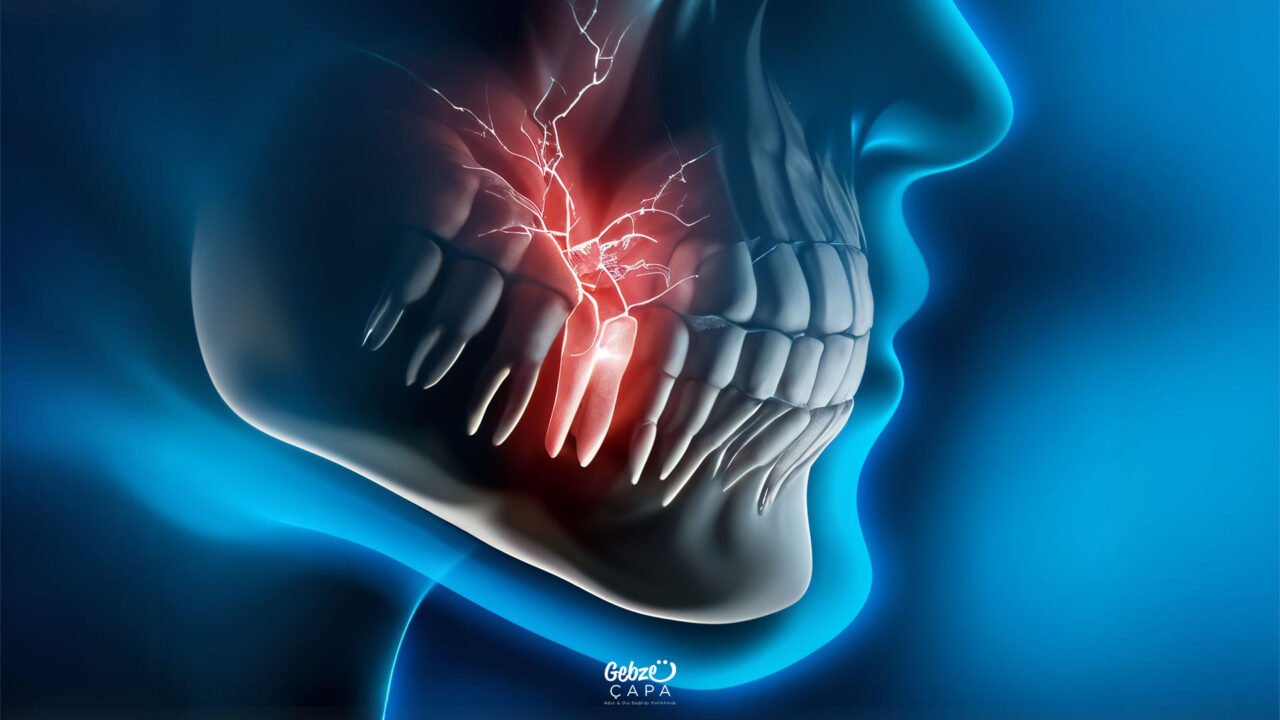Wisdom Tooth Pain
Wisdom tooth pain is a common and often bothersome problem that most people encounter at some point in their lives. Wisdom teeth, which usually appear between the ages of 17 and 25, may have difficulty adapting to the mouth structure during this period when the dental jaw is not fully developed. The emergence of these teeth becomes a big problem for many people.
Complaints such as pain, swelling, infections and inflammation of the gums experienced during the period when wisdom teeth begin to emerge can be quite tiring both physically and psychologically. Although this discomfort caused by wisdom teeth can sometimes be solved with a simple tooth extraction, in some cases it may require more serious interventions.
What is Wisdom Teeth?
Wisdom teeth are known as third molars and are the last teeth in the human mouth. They are usually located at the very back of the jawbone. There are a total of four wisdom teeth in the human mouth: two in the upper jaw and two in the lower jaw. These teeth emerge in young adulthood, usually between the ages of 17 and 25. However, due to the shrinking of the human jaw during the evolutionary process, the emergence of wisdom teeth has often become a problematic process.
Historically, wisdom teeth served a more important function because of our ancestors’ larger jaws and hard, chewing diets. These teeth were used to chew meat and other hard foods. However, over time, with changes in people’s eating habits and the preference for softer foods, jaws have become smaller and the need for wisdom teeth has decreased. For this reason, in many people today, wisdom teeth cannot develop properly because there is not enough space in the mouth and can cause various problems when they come out.

What Causes Wisdom Tooth Pain?
Wisdom tooth pain can be caused by many different causes, and each can cause varying degrees of discomfort. Most people’s jaw structure does not provide enough space for wisdom teeth to erupt properly. This insufficient space can cause the tooth to get stuck and put pressure on the surrounding teeth, causing pain and distortions in tooth alignment. Another common cause is impacted wisdom teeth.
These teeth may remain embedded in the jawbone or gum and cause severe pain when they cannot erupt at the correct angle. Impacted teeth can worsen the situation by causing inflammation in the surrounding tissues. Additionally, since wisdom teeth are in a difficult-to-reach position in the mouth, it is very difficult to clean these teeth. Difficulties in cleaning increase the risk of tooth decay, which can lead to pain and infections.
Another common problem is gum infections. During the period when the wisdom tooth is trying to come out, infections may occur in the gums. These infections often occur as a result of inadequate cleaning of the area around the tooth and can lead to a condition called pericoronitis. This can cause severe pain, swelling and sometimes high fever. Such problems experienced during the eruption of wisdom teeth are situations that require professional treatment.
Symptoms of Wisdom Tooth Pain
Wisdom tooth pain usually feels sharp and throbbing. Here are the most common symptoms:
- Intense Pain: Severe pain felt in the back of the jaw may be a sign that the wisdom tooth is trying to come out.
- Swelling and Redness: Swelling and redness may occur in the gums.
- Difficulty Chewing: Wisdom tooth pain can cause difficulty in eating or chewing.
- Headache and Earache: The pressure of the wisdom tooth on the surrounding nerves can cause headache and earache.
- Difficulty Opening the Mouth: Inflammation around the wisdom tooth can restrict jaw movements.
How to Relieve Wisdom Tooth Pain
Wisdom tooth pain usually occurs due to reasons such as insufficiency in the jaw structure, tooth failure or infection, and this pain can be very disturbing. However, there are some methods available to relieve such pain.
- Using Painkillers: The severity of wisdom tooth pain can sometimes be so disturbing that it can affect daily life. In this case, painkillers (such as ibuprofen or paracetamol) recommended by your doctor or available from the pharmacy can be used. These medications can help relieve pain and reduce inflammation.
- Gargling with Salt Water: Salt water can help kill bacteria in the mouth and soothe gums. You can gargle by mixing a teaspoon of salt in a glass of warm water. This can provide relief, especially if there is swelling or inflammation of the gums.
- Applying a Cold Compress: Wisdom tooth pain can sometimes cause swelling. To reduce swelling and pain, it may be useful to apply a cold compress externally to the painful area. Wrap an ice pack in a thin cloth and apply it to the painful area for 15-20 minutes.
- Using Oral Antiseptics: Antiseptic mouthwashes can be used to prevent infections in the mouth and relieve pain. These products prevent the proliferation of bacteria and reduce inflammation in the gums.
- Applying a Warm Compress: If there is inflammation in the gums, a warm compress can also relieve the pain. By gently compressing the painful area with a warm cloth, you can increase blood flow and help relieve pain.
- Consult Your Doctor: If home methods are not sufficient to relieve the pain, it is important to consult a dentist. Your dentist can determine the cause of the pain and recommend appropriate treatment methods. Wisdom tooth extraction or other intervention may be required.
Although wisdom tooth pain may seem like a temporary problem, if it persists for a long time or is severe, professional help should be sought. Remember, wisdom teeth may develop differently in each individual and there may be different health problems underlying the pain. Therefore, if the pain continues for a long time, a dentist should be consulted.

Should Wisdom Teeth Be Extracted?
Although wisdom teeth have fulfilled an important function in the evolutionary past, they are among the teeth that often cause problems today. Whether or not wisdom teeth need to be removed is a personal situation and should be decided by taking into account the different conditions in each individual’s mouth.
When deciding whether to remove wisdom teeth, factors such as the condition of the tooth, its eruption, pain and complications are taken into account. If the wisdom tooth can erupt properly, there is enough space in the mouth, and it does not harm dental health, the tooth may not need to be extracted. However, since the emergence of these teeth usually occurs at a time when the jaw structure is inadequate, it creates problems for many people.
Situations such as the tooth not coming out completely, getting stuck in the gum, or growing at wrong angles can lead to pain, infections, inflammation of the gums, and damage to neighboring teeth.


